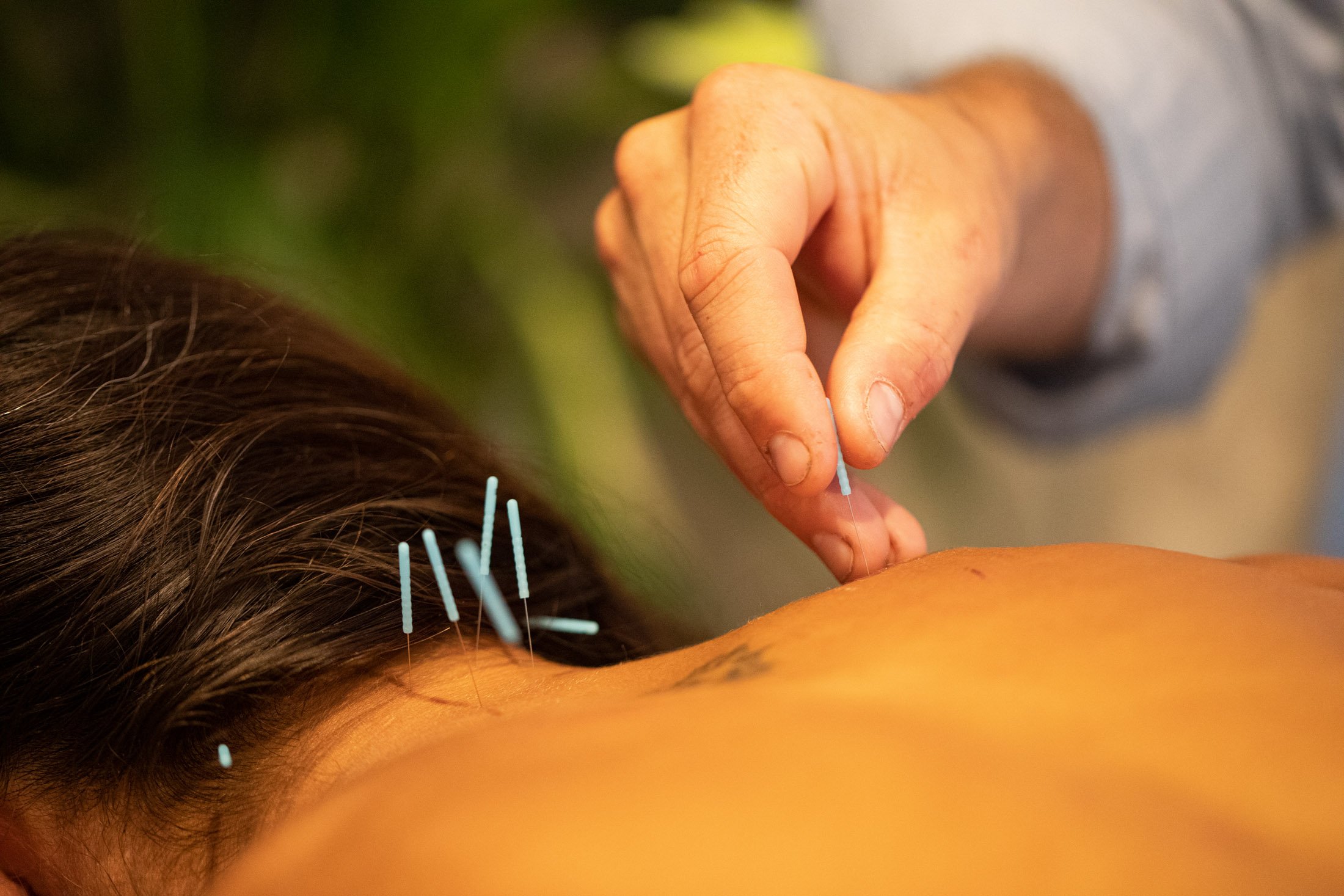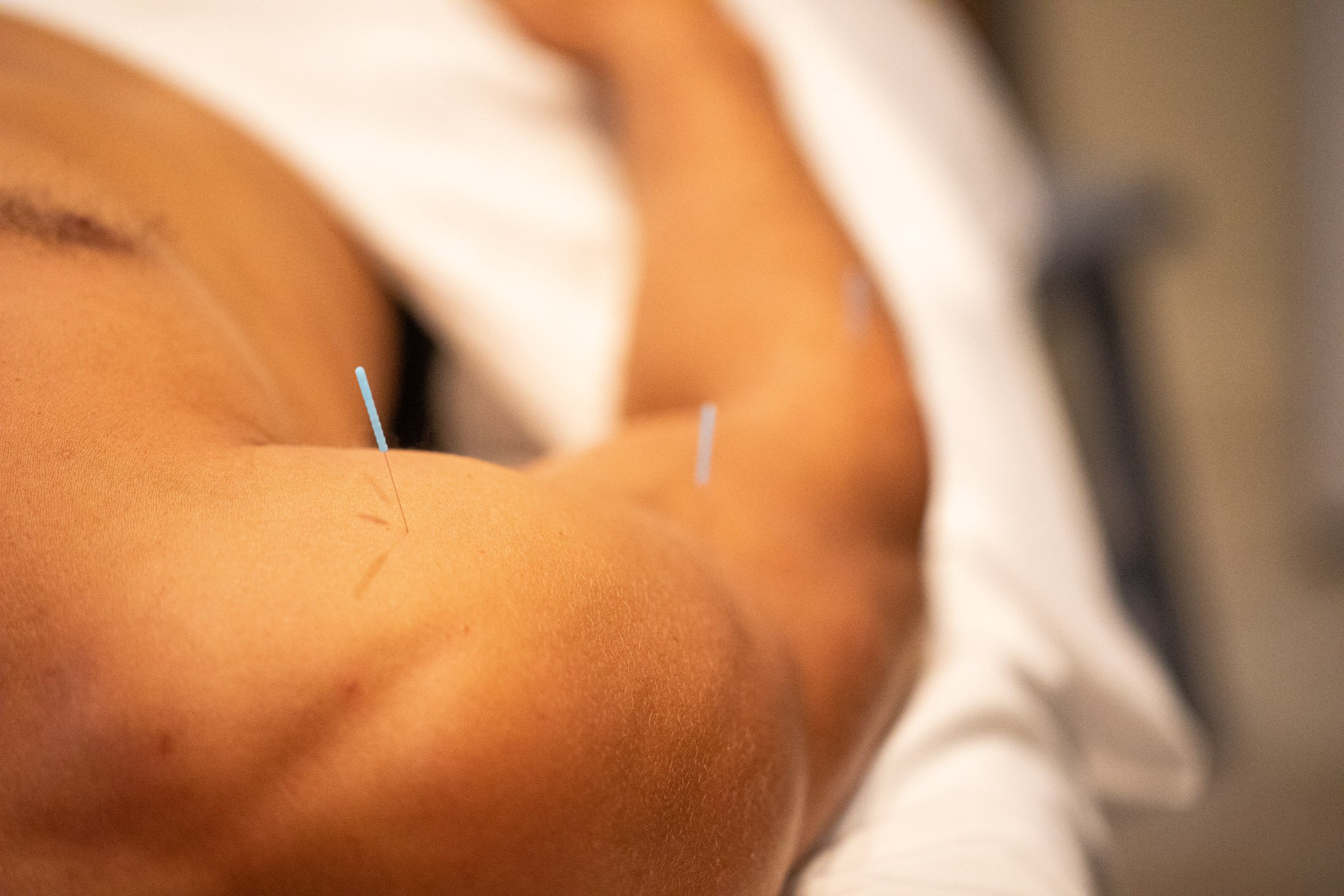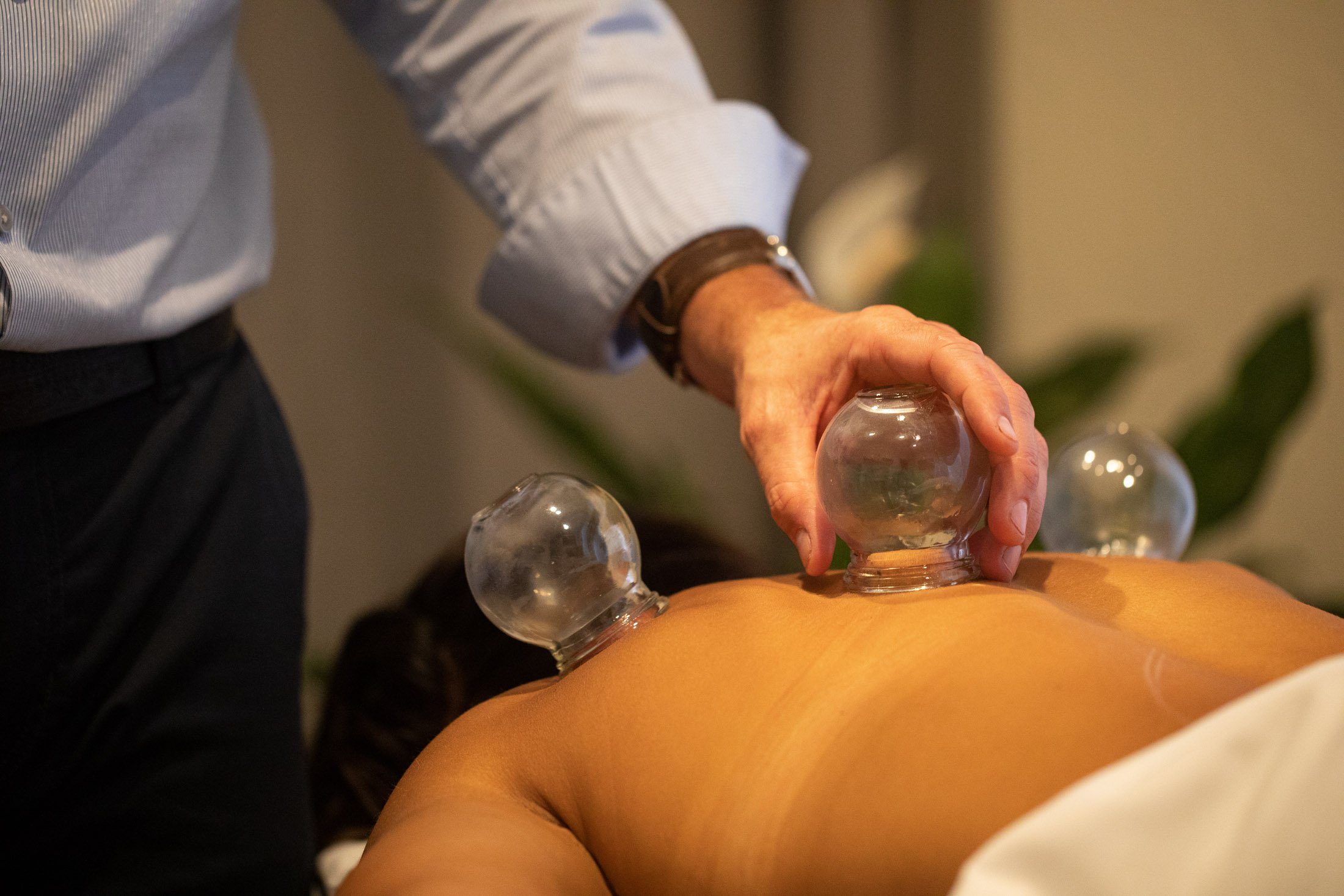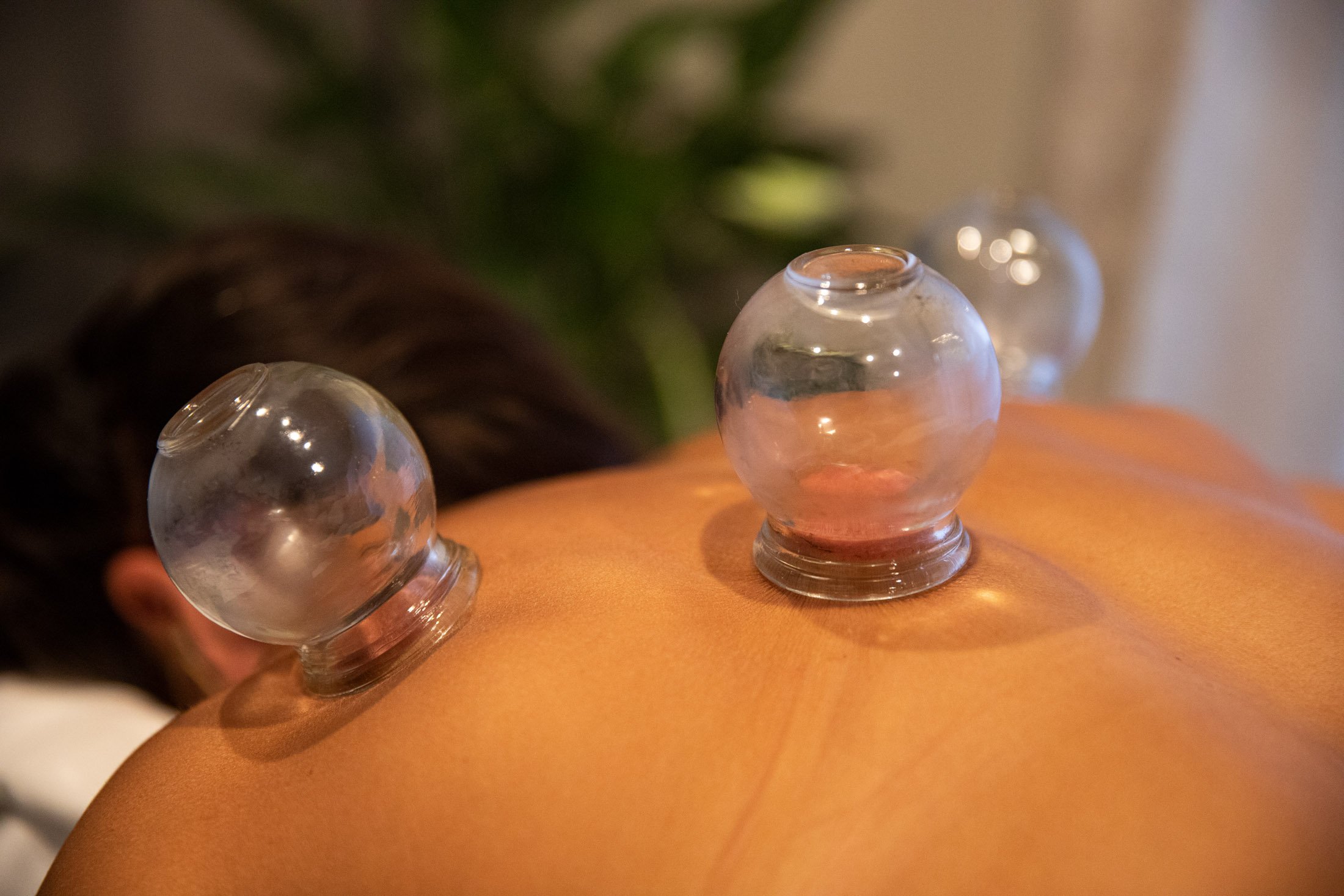INTEGRATIVE ACUPUNCTURE & BODYWORK
A Comprehensive Treatment includes a thorough intake, diagnosis, and treatment plan. By integrating acupuncture, medical massage and cupping with herbal and functional medicine, each session is designed to treat the root cause of medical symptoms, clearing stress, and elevating the psyche.
Acupuncture and Bodywork are key components of East Asian Medicine, a millennia-old, vast system of medical techniques practiced globally. Within this framework are effective therapies for treatment and relief of myriad conditions affecting mind-body-soul. Integrative Acupuncture promotes mindfulness and tranquility, and treats health conditions including pain, depression, anxiety and stress, autoimmune and inflammatory disorders, vascular disease, allergies, digestive dysfunction, menstrual imbalances and more.
TREATABLE CONDITIONS
-
A 2012 meta-analysis from the Canadian Journal of Psychiatry states, “Published data suggest that acupuncture, including manual-, electrical-, and laser-based, is a generally beneficial, well-tolerated, and safe monotherapy for depression… Manual acupuncture reduced side effects of ADs [antidepressants] in MDD [major depressive disorder].”
Acupuncture regulates many systems within the body, and one outcome of this is improved cognitive ability and emotional regulation. 90% of serotonin is produced in the gut. Acupuncture can help restore the gut-brain axis and microbiome. It can also help to promote neural-regeneration, improve heart rate variability, and as described in the language of East Asian medicine, “Settle the heart-mind and promote spirit-brightness”.
-
A 2016 systematic review with 400 randomized patients found that ‘the effects from acupuncture for treating anxiety have been shown to be significant as compared to conventional treatments.’ One way acupuncture works to relieve anxiety, and bolster the ability to cope with stress is by its effect on regulating Heart Rate Variability (HRV). Having healthy HRV generally indicates overall health with resilience to life’s stressors.
-
Heart rate variability (HRV), stress and parasympathetic recovery are closely related to health, longevity and vitality in humans.”
A 2020 study measuring electrical-stimulation acupuncture’s effect “showed a measurable reduction in sympathetic stress with subsequent improvement in vagal tone, and HRV. This positive sympathetic nervous system deactivation from LFEA (low-frequency electro-acupuncture) application shown in this study could have a major impact on other pathologies related to human health and longevity.”
-
Studies on acupuncture for vasomotor symptoms associated with Menopause (VMS) reported 50% reductions in hot flashes that lasted for up to six months after acupuncture treatment. Osteoporosis, sleep disorders, depression, and cognitive symptoms associated with menopause and menstruation have all shown positive effects from acupuncture through controlled trials ATP, purinergic receptors, endorphins, and glucocorticoids are all modulated by acupuncture and play a role in the treatment of menopause and menstrual related disorders.
-
“While effect size estimates of the two trials [totaling >1400 patients] differed considerably, the proportion of participants experiencing at least 50% reduction of headache frequency was much higher in groups receiving acupuncture than in control groups [usual care].” This is a quotation from a Cochrane review of acupuncture for tension-type headaches. Cochrane reviews are considered one of, if not the highest quality evidence. Acupuncture and its role in treatment of headaches is well-studied and evident within the clinical setting. Furthermore:
“Acupuncture was associated with a moderate reduction of headache frequency over no acupuncture after treatment (four trials, 2199 participants);...After treatment headache frequency at least halved in 41% of participants receiving acupuncture and 17% receiving no acupuncture.” Additionally, “Acupuncture reduced migraine frequency significantly more than drug prophylaxis after treatment.”
-
“The American Heart Association (AHA) reviewed the evidence for using acupuncture for patients with hypertension and concluded that three trials were with relatively high quality. One study from Germany and China showed that acupuncture induced a reduction in SBP by 5.4 mm Hg; one from the United States demonstrated a reduction in SBP by 3.6 mm Hg; and another one showed a reduction of 14 mm Hg in SBP. The three studies also found a reduction in DBP by 3‐7 mm Hg.” Acupuncture and Integrative Medicine are helpful tools in the management of vascular and heart health. In East Asian medicine, the heart is considered the Monarch and the source of overall health.
-
In a 2016 survey of 89,000 patients, 93% of patients said that their acupuncture practitioner had been successful in treating their musculoskeletal pain. A meta-analysis of 17,922 patients from randomized trials found, “Acupuncture is effective for the treatment of chronic pain and is therefore a reasonable referral option. Significant differences between true and sham acupuncture indicate that acupuncture is more than a placebo.” Acupuncture regulates pain by modulating endorphins and the brain’s sensitivity to these molecules, and promotes recovery from injury by resetting hypertonic muscle fibers and perfusing tissues with nutrient-rich blood.
-
Orthopedic and Sports Acupuncture employs precise understanding of anatomy and Chinese Medical Theory to resolve inflammation, reset trigger points, and accelerate the healing process: improving and optimizing physical function and performance. Acupuncture and medical massage are the lead treatment interventions, with therapeutic exercise to support. If you have physical injury or pain, Orthopedic Acupuncture may serve you on your journey back to easeful movement and activity.
-
Acupuncture and herbal medicine are well-studied for their effect on autoimmune conditions. Acupuncture has shown strong clinical efficacy by regulating Interleukin-2 in cases of rheumatoid arthritis, a common inflammatory condition of autoimmune origin. A 2010 study published in Autonomic Neuroscience: Basic and Clinical summarizes the research: “increasing clinical evidence support that EA [electrical-stimulation acupuncture] treatment is effective for various immunological diseases including allergic disorders, infections, autoimmune diseases and immunodeficiency-syndromes.” Functional Medicine and acupuncture together are synergistic for decreasing inflammation and lowering immune sensitization, repairing tissue, restoring the microbiome and gut-brain axis.
-
Allergic rhinitis involves an overly sensitive immune system and the development of antibodies called IgE. These hyper-potent IgE antibodies promote a cascade of inflammation and immune system activation when a usually innocuous substance enters the person’s body. Through controlled trials acupuncture has been demonstrated to decrease production of IgE antibody formation, downregulate TRPV1 receptor expression and decrease systemic Substance P, thereby interrupting the inflammatory cascade associated with mast cell and histamine receptor activation.
-
“The brain-gut axis is a bridge that connects the CNS and GI tract. By means of the brain-gut axis, signals from the brain influence the sensory, motor, and secretory modalities, as well as the microbiota of the gut. Conversely, visceral messages from the microbiota may influence brain functions…Acupuncture may be helpful in restoring GI barrier injury by regulating the neuron-endocrine-immune system and antagonizing the inflammatory response.” In other words, acupuncture benefits the gut-brain-microbiome connection; decreases inflammation, and improves assimilation of nutrients and toxin elimination.
-
“MRI studies on patients with AD or mild cognitive impairment have shown that acupuncture activates and deactivates several regions of the brain. They include the basal ganglia, cerebellum, cognitive, visual, and sensorimotor-related areas.” Acupuncture has also been shown to modulate neuroplasticity by promoting neurogenesis and gliogenesis within the central nervous system and regulating associated pathways.
TYPES OF TREATMENT
Integrative Acupuncture incorporates the systems of East Asian Medicine and Functional Medicine. This is Primary Health Care, and both acute and chronic conditions can be treated. Inflammation and pain is reduced, stress relieved, function improved, emotion and mood centered, and tissues of the body nourished.
Acupuncture - Within a relaxing and peaceful setting, your body is engaged at key spaces with pressure, heat, and/or extremely fine, single-use needles. Generally, the needles are left in place for 10-30 minutes. There is sensation to acupuncture treatment; most find it is a relaxing and rejuvenating experience, with minimal discomfort.
Medical Massage - Includes cupping, guasha, and multi-disciplinary massage. It can be used as a laser-focused intervention, or as a total-body ‘tune-up’ to alleviate stress and promote serenity.
Herbal Prescriptions- Treatment plans may include custom herbal formulae consisting of ingredients with potency and clinical efficacy. Each formulation is hypoallergenic and tested by a third-party for purity.
Functional Medicine - According to the Institute for Functional Medicine: “By addressing root cause, rather than symptoms, practitioners become oriented to identifying the complexity of disease.” Conforming to the vow of “Do no harm”, diet, lifestyle, and other less interventional therapies are the first-line agents in addressing health.
Supplemental Teas - The tea plant, Camellia sinensis, has special medicinal properties within the traditions of Asia: a view similarly shared by modern science. Tea interrupts inflammatory cascades through multiple channels by its extremely potent antioxidant compounds called catechins, the most famous and well-studied being EGCG. Tea is excellent for promoting a healthy weight, skin and cognitive health. When brewed with presence, tea blossoms into a powerful mind-body therapeutic.
“Dr. Skylar is a true healing force. I would say nothing short of amazing” - A. Smith
Dr. Skylar Stumpf dually specializes in Internal Medicine, with a focus on chronic, autoimmune, and digestive conditions: including previous viral infections; and in Physical Medicine treating orthopedic injury. In treating the associated multi-system symptom complex, he values compassion and sensitivity: understanding the profound impact on life chronic illness and pain exerts.
Skylar holds a Doctorate and Masters in Chinese Medicine, has extensive professional massage experience, and is licensed as an acupuncturist and treating physician in the State of California.
Skylar is available Monday, Tuesday, Saturday & Sunday
ADVANCE YOUR HEALTH
Dr. Skylar Stumpf provides a well-rounded, safe and effective, evidenced-based approach to primary health care that can be used by anyone to cultivate optimal health, performance, longevity, and well-being.
Relax and restore using Integrative Acupuncture at Sage Float Spa.
PRICING
Integrative Acupuncture
Initial Evaluation:
80 Mins: $185
Follow-Up Sessions:
50 Minutes: $135
80 Minutes: $175
*Each session includes integrative medical intake, diagnosis and acupuncture, sometimes with electrical stimulation, medical massage, cupping, guasha, auricular therapy, and facial rejuvenation
Integrative Bodywork
80 Minutes: $195
110 Minutes: $240
*Each session is medical bodywork that incorporates the systems of East Asian Medicine and Functional Medicine. This is primary healthcare treating the whole human-being: inflammation and pain reduced, stress relieved, function improved, and spirit brightened.
COVID-19 PROTOCOLS
You must wear your mask during your treatment at Sage. Your practitioner will also wear a mask. Table, headrest and bolsters are cleaned with EPA approved cleaners that sit for 10 minutes to ensure all pathogens and viruses are destroyed. In addition to robust cleaning, a Dyson air purifier will be running through your entire massage and between guests.





